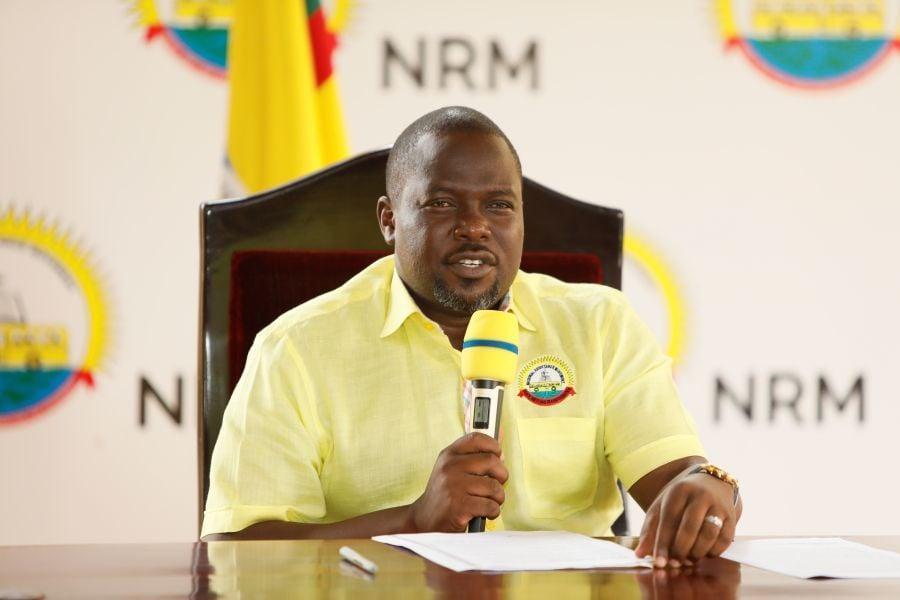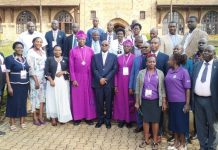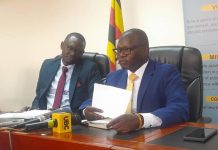Africa-Press – Uganda. The ruling National Resistance Movement (NRM) has revealed plans to amend the Local Government Act to grant its party chairpersons ex-officio status in all local government councils — a move critics fear could entrench the party’s dominance in public governance ahead of the 2026 general elections.
NRM Secretary General Richard Todwong made the announcement during a press briefing on Sunday, saying the proposed amendment would formally integrate NRM’s grassroots leadership into the local decision-making architecture, from villages to districts.
“We are working on a plan to amend the Local Government Act so that our party chairpersons become part of local councils as ex-officials,” Todwong said.
“This will ensure that the government is represented where it matters — right at the decision table in every village, sub-county, municipality, and district.”
He framed the proposal as a way of aligning government programmes with the party’s manifesto and improving service delivery oversight through structures that already exist on the ground.
“This isn’t just about politics,” Todwong added.
“It’s about ensuring alignment between what we promise and what is delivered. Our chairpersons are already on the ground — this amendment will simply make their role formal and effective.”
If passed, the law would allow unelected party chairpersons to attend and speak at council meetings as ex-officio members, though they would not hold voting rights.
Still, critics argue that such a move blurs the line between state and party and threatens the integrity of multiparty governance.
“This is a backdoor attempt to turn local councils into NRM branches,” a senior official from the opposition Forum for Democratic Change (FDC) said on condition of anonymity.
“We already have a problem with the fusion of the party and the state — this amendment would legitimise it.”
Similar concerns were raised when the NRM recently pushed for more representation in public sector committees, and observers now say this latest move fits into a wider strategy to secure political dominance at all administrative levels ahead of the next elections.
Uganda’s 1995 Constitution and subsequent decentralisation policy were intended to make local governments autonomous and accountable to the people, not to political parties.
Critics fear the proposed amendment could undermine that independence.
“The Local Government Act is meant to serve citizens across political divides,” said constitutional lawyer Sarah Bireete.
“Adding partisan officials to local councils without public mandate distorts democratic representation.”
Todwong, however, dismissed those concerns, insisting the NRM is only formalising what already exists in practice and that the measure is within constitutional limits.
“The people trust us,” he said. “This is about enhancing representation, not stifling it.”
Parliament is expected to receive the draft bill in the coming weeks, where debate is likely to be heated.
NRM holds a dominant majority in the House, but any changes to the Local Government Act will likely be closely watched by civil society organisations and international observers monitoring Uganda’s democratic process.
The proposal arrives at a politically sensitive moment, as all parties begin internal preparations for the 2026 general elections.
Local government structures — which range from LC1s to district councils — play a key role in mobilising support, enforcing bylaws, and coordinating public service delivery.
If adopted, the amendment could reshape Uganda’s local governance model, effectively giving the NRM an embedded presence in nearly every public decision-making forum in the country — and potentially setting a precedent for party-state fusion that could influence Uganda’s political landscape well beyond 2026.
For More News And Analysis About Uganda Follow Africa-Press






